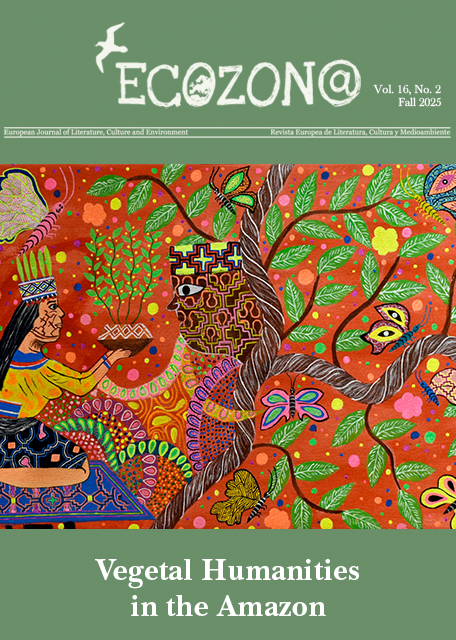L'apport de la littérature à la composition d’un « monde commun »: « Die Wand » de Marlen Haushofer et « Minotaurus » de Friedrich Dürrenmatt
DOI:
https://doi.org/10.37536/ECOZONA.2023.14.1.4714Schlagworte:
monde commun, littérature, humains, non-humains, rapporte nature/culture, écocritique, Die Wand, Haushofer, Minotaurus, DürrenmattAbstract
Dans le contexte actuel de la crise écologique et de la pandémie de Covid-19, alors qu’il est nécessaire de "repenser les rapports entre humains et non-humains" (Philippe Descola), cet article propose une relecture comparée de deux œuvres issues de la littérature de langue allemande, parues à douze ans d’intervalle, en pleine guerre froide, Die Wand (1963) de l’auteure autrichienne Marlen Haushofer, et Minotaurus: Eine Ballade (1985) de l’écrivain suisse Friedrich Dürrenmatt. Je m’intéresserai dans ces récits à ce qui fait et défait les collectifs, à ce que Marielle Macé a appelé la "grammaire des attachements". Comment s’exprime par les mots, notamment les pronoms personnels, le travail qui consiste à se nouer les uns aux autres, et ces liens se nouent-ils de façon juste ? Les deux ouvrages étudiés parviennent-ils à définir un "nous", à faire émerger une communauté des organismes vivants, humains et non-humains ? L’article s’interrogera sur l’apport de la littérature à la "composition d’un monde commun" (Bruno Latour), en se demandant si les scenarii proposés dans les deux œuvres rendent possible un "espoir actif" (Joanna Macy), et ce qu’ils nous apprennent sur l’histoire de l’idée de nature à l’heure des grands bouleversements écologiques.
Downloads
Downloads
Veröffentlicht
Ausgabe
Rubrik
Lizenz
Authors who publish with this journal agree to the following terms:
a) Authors retain copyright and grant the journal right of first publication with the work simultaneously licensed under a Creative Commons Attribution License that allows others to share the work with an acknowledgement of the work's authorship and initial publication in this journal (CC BY-NC for articles and CC BY-NC-ND for creative work, unless author requests otherwise.
b) Authors are able to enter into separate, additional contractual arrangements for the non-exclusive distribution of the journal's published version of the work (e.g., post it to an institutional repository or publish it in a book), with an acknowledgement of its initial publication in this journal.
c) Authors are permitted and encouraged to post their work online (e.g., in institutional repositories or on their website) prior to and during the submission process, as it can lead to productive exchanges, as well as earlier and greater citation of published work (See The Effect of Open Access).










